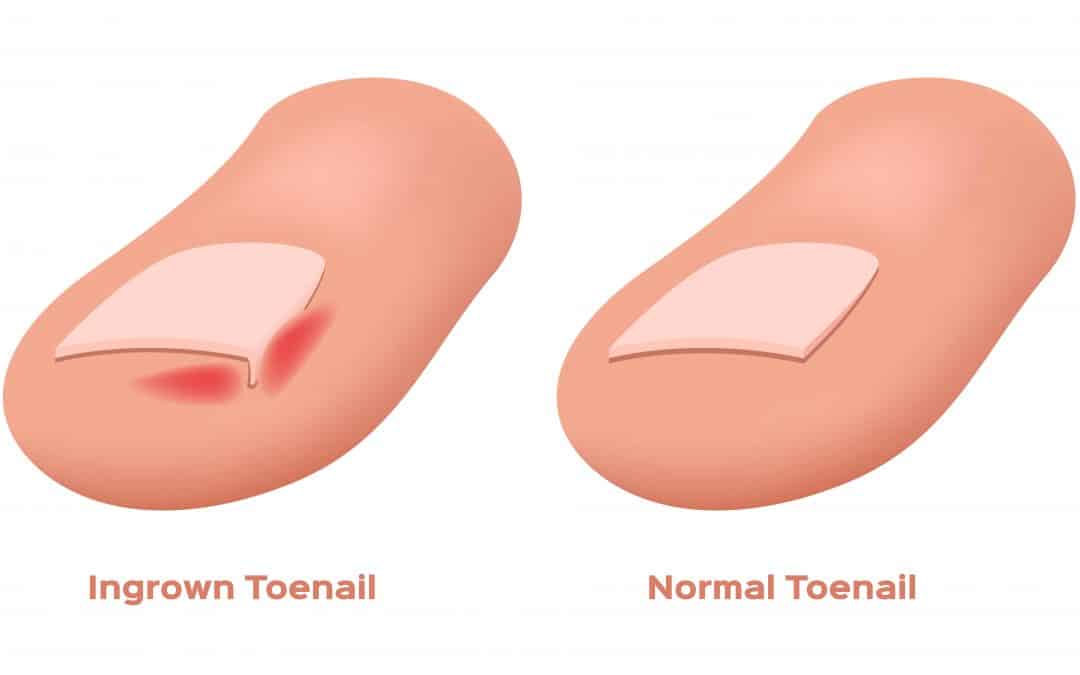
5 Tips on how to avoid Ingrown Toenails!
The Foot Pod provides foot and ankle care to patients all over Perth. Dr. Rachel Timmins helps many people through their foot care needs, and that includes ingrown toenails, which is why we’ve put together this guide on ingrown toenails and how to prevent them from happening to begin with.
What are Ingrown Toenails?
Ingrown toenails are when the edge of the nail pushes its way through the flesh of your foot, which can cause swelling, redness, infection and significant pain.
They may also break in the skin, which can cause a bacterial infection, with symptoms like drainage and a strong, foul smell. People with diabetes are especially susceptible to this, as they may have poor blood flow and damaged nerves in their feet.
If left untreated, ingrown toenails can infect the underlying bone and even lead to a bone infection.
How do they happen?
- A naturally curved nail bed.
- Pressure on the toes and nails due to tight- or ill-fitting shoes and socks.
- Nail conditions, such as fungal infections or the previous loss of a nail.
- Trauma, such as stubbing your toe or engaging in activities where there is repeated pressure onto your toes, such as soccer and running.
- The way you walk.
- Improper nail cutting. When nails are cut too short, the skin next to the nail can fold over it.
- They can also be hereditary: some people inherit the tendency for ingrown toenails.
How can you avoid ingrown nails?
1. Correct trimming
Trimming your toenails straight across, instead of curving them to match your toe, will help. If you have poor blood flow to your feet and can’t trim your nails, seeing a podiatrist regularly and having them trim your nails is highly recommended.
2. A moderate length
Keep your toenails at a moderate length: not too long or short. Trimming them too short may direct them to grow into the tissue, which can cause ingrown nails, so keep them even with the tips of your toes.
3. Wear proper fitting shoes
Buy properly fitted shoes, as ill-fitting shoes can place pressure on your toes and lead nails to grow into surrounding tissues. Your podiatrist will be able to help you find the right shoe for you.
4. Protect your feet
If you often stub or injure your toes, invest in protective footwear, such as steel-toed shoes, to protect them.
5. Check your feet
If left untreated, ingrown toenails can create big problems, so check your feet daily for signs of all foot problems.
What to do if you have them..
If you have ingrown toenails, it’s time to visit the podiatrist. They will discuss your options with you and be able to help you work out what’s causing the ingrown toenails.
Contact our friendly staff today!
At the Foot Pod, we treat many clients with ingrown toenails: they’re more common than you think! Our treatment options range from providing advice to minor surgical treatments, depending on our client’s needs.
If you have ingrown toenails or tend to develop them, contact us today. We are available online or call us on (08) 9246 7292.
